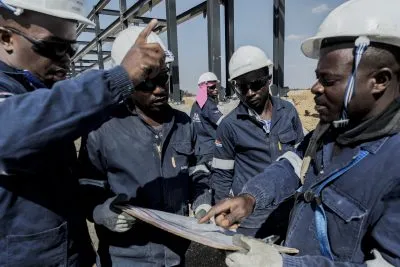The World Bank is aiming to mobilise $16bn to help African countries adapt to climate change as the world gathers for crucial talks in Paris.
The Washington-based lender will launch its Africa Climate Business Plan at Cop21, where the world’s climate negotiators will meet from late November to hammer out a deal on preventing a rise in global temperatures.
The plan aims to draw on $5.7bn of funds from the International Development Association, the World Bank arm that supports the poorest countries, as well as funds from the development community, the private sector and domestic sources.
Africa has long demanded increased financial support from developed nations to help the continent adapt to global warming. Scientists believe climate change will hit Africa harder than other regions, with the continent’s annual GDP loss estimated to range from 1.5% to 3% by 2030.
Yet thorny discussions over climate finance have hampered previous global climate talks, with wealthier nations refusing to sanction the vast amounts that experts say is necessary for Africa to avoid catastrophic changes. The World Bank estimates that that the region requires $5-10bn a year to adapt to global warming of 2 degrees, the current global target.
The 2009 Copenhagen summit spawned a pledge on behalf of developed nations to provide $100bn a year until 2020 to help developing nations combat climate change. But the OECD estimates that actual climate finance amounted to just $62bn in 2014 and $52bn in 2013.
In an interview with African Business earlier this month, Seyni Nafo, spokesman for the African Group of Negotiators, said that finance for adaptation remained inadequate and called for greater private sector funding.
“$100bn is insignificant, we need to mobilise trillions, and they cannot be mobilised if we don’t start a serious conversation with the financial economy – hedge funds, industry, pension funds,” he said.
Jim Yong Kim, president of the World Bank, said that existing climate finance for Africa was insufficient and that the new plan would offer some protection to governments from the side-effects of global temperature rises.
“Sub-Saharan Africa is highly vulnerable to climate shocks, and our research shows that could have far-ranging impact – on everything from child stunting and malaria to food price increases and droughts,” he said.
“This plan identifies concrete steps that African governments can take to ensure that their countries will not lose hard-won gains in economic growth and poverty reduction, and they can offer some protection from climate change.”
David Thomas
Want to continue reading? Subscribe today.
You've read all your free articles for this month! Subscribe now to enjoy full access to our content.
Digital Monthly
£8.00 / month
Receive full unlimited access to our articles, opinions, podcasts and more.
Digital Yearly
£70.00 / year
Our best value offer - save £26 and gain access to all of our digital content for an entire year!
 Sign in with Google
Sign in with Google 



